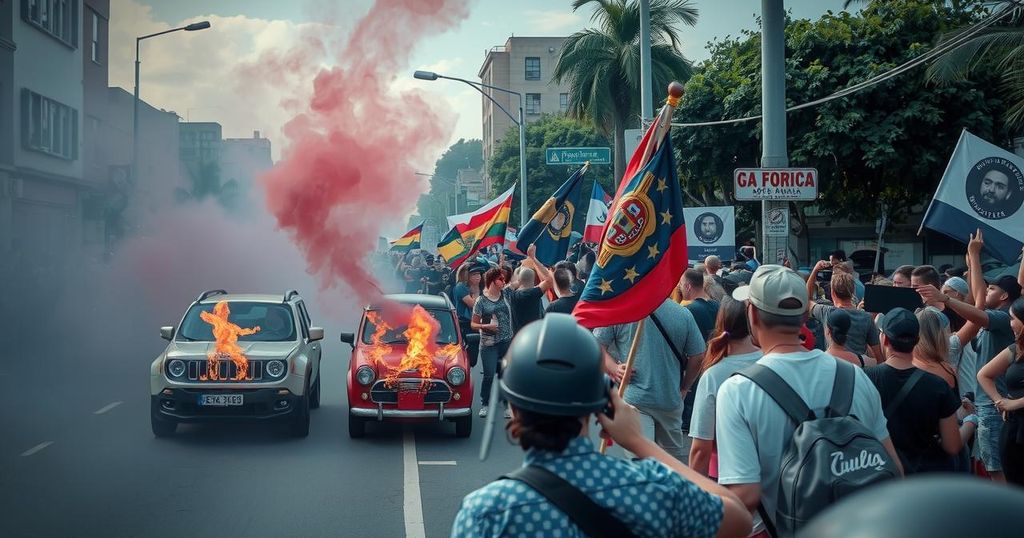Bolivia has been experiencing over two months of protests driven by a power struggle within the ruling MAS party, economic challenges, and public discontent. Similar anti-government sentiments have emerged across Latin America, particularly in Peru, Colombia, and Ecuador, as citizens seek to address issues of corruption, repression, and social reform. The upcoming 2024 presidential elections may further alter the political landscape amidst these tensions.
In recent months, Bolivia has been engulfed in protests characterized by civil unrest and political clashes. This turmoil, persisting for over two months, highlights a broader trend across South America, where nations such as Ecuador, Peru, and Colombia have also witnessed significant public demonstrations fueled by dissatisfaction toward their governments. At the center of Bolivia’s crisis lies a power struggle within the Movement for Socialism (MAS), the ruling leftist party led by President Luis Arce and former President Evo Morales, who is seeking to reclaim influence ahead of the upcoming presidential elections in 2024.
Evo Morales, Bolivia’s first indigenous president, initially gained prominence in 2006 by promoting Indigenous and rural populations. However, his administration faced allegations of authoritarianism and corruption, culminating in his flight from the country in 2019 following contested elections. Morales returned after Arce’s election victory in 2020, leading to escalating tensions between them. Currently, Morales is confronting serious legal challenges, including accusations of statutory rape, which he asserts are politically motivated. Meanwhile, the Arce administration grapples with an economic crisis marked by fuel shortages, rising prices, and diminishing access to essential goods, further exacerbating public discontent.
This political unrest is part of a larger pattern in the region. In Peru, President Dina Boluarte faces overwhelming public disapproval due to rampant corruption and violent repression of protesters, coupled with declining economic conditions. Colombia has seen mass protests against President Gustavo Petro’s social reform initiatives, as citizens express frustration with perceived government overreach and economic hardship. Likewise, Ecuador has experienced significant instability characterized by armed conflict with organized crime and citizens protesting against inadequate services.
As Bolivia heads toward its presidential elections, the political landscape remains uncertain. Although no major opposition party currently rivals MAS’s support, internal divisions within the party could reshape future political alliances and governance. While President Arce has yet to declare his candidacy, the coming months will be critical in determining the trajectory of Bolivian and, indeed, South American politics.
The political instability in Bolivia is symptomatic of broader unrest across South America, with various countries experiencing their own waves of protests born out of discontent with political leaders and economic challenges. Since 2024, the region has been characterized by protests against government measures, corruption, and issues concerning the protection of civil rights. Leadership contests, particularly within ruling parties like MAS in Bolivia, encapsulate the struggles for power and influence that define the political discourse throughout Latin America.
The situation in Bolivia reflects deeper socio-political unrest not only within its borders but across South America. With critical elections approaching, the ongoing power struggles within MAS and the public’s reaction to government policies will significantly shape Bolivia’s political future. The pattern of protests across the region underscores a burgeoning demand for accountability, justice, and governance that truly reflects the will of the people. Only time will determine whether these unrests lead to substantial political change or further turmoil.
Original Source: www.firstpost.com






